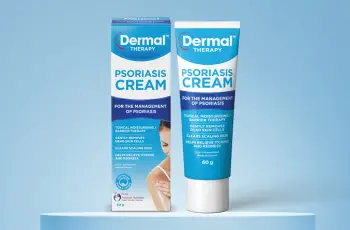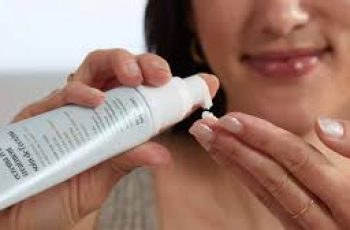
Hydrating vs. Moisturizing: Understanding the Key Differences for Healthier Skin
In skincare, the terms “hydrating” and “moisturizing” are often used as if they mean the same thing, but they actually describe two separate processes that are equally essential for maintaining healthy, balanced skin.
Understanding the difference between hydration and moisturization allows you to create a targeted skincare routine that effectively meets your unique needs, especially if your skin struggles with dryness, dehydration, or both issues.
To help clarify this topic, board-certified dermatologists Lindsey Zubritsky, MD, and Kenneth Mark, MD, have explained the core concepts of hydration and moisturization, including when your skin needs each one for the best results.
What Does Hydrating Your Skin Mean?
Hydration refers to increasing the water content in your skin, much like how drinking water hydrates your body from within. It focuses specifically on replenishing water in the outermost layers of your skin barrier.
Proper hydration is crucial for maintaining skin elasticity, bounce, and overall function. Without sufficient water content, the skin can become dull, tired-looking, and less able to defend itself from environmental stressors.
Dehydrated skin often feels tight and shows fine lines more visibly. Hydration brings water back into the skin to improve plumpness, smoothness, and luminosity, making your complexion appear fresher and more youthful.
How to Hydrate Your Skin
Hydrating the skin usually involves using products with humectants—ingredients that attract water molecules from the environment and deeper layers of the skin to the surface, helping replenish water loss effectively.
Humectants improve hydration by pulling water into the skin where it is most needed. This is especially beneficial in conditions where your skin is lacking in natural moisture and appears thin, flat, or tired.
Common Hydrating Ingredients:
Hyaluronic Acid – Known for its exceptional water-binding capacity, hyaluronic acid can hold up to 1,000 times its weight in water, instantly plumping and softening dehydrated skin for a dewy appearance.
Lactic Acid – A gentle humectant and mild exfoliant, lactic acid hydrates the skin while also removing dead skin cells, improving absorption and making it an excellent option for sensitive skin types.
Glycerin – This widely used humectant draws water from the air into the outer layer of skin, leaving the skin soft, smooth, and visibly hydrated throughout the day without a heavy or greasy finish.
Benefits of Hydrating Your Skin
Proper hydration gives the skin a refreshed, supple, and plump look. By boosting the water content in your skin, hydration minimizes the appearance of fine lines and wrinkles caused by dehydration, creating a youthful glow.
Hydrated skin is better equipped to function as a barrier, preventing environmental irritants from penetrating deeply. This can reduce sensitivity and make your skin more resilient to everyday stressors like pollution.
What Does Moisturizing Your Skin Mean?
Moisturizing, unlike hydration, focuses on trapping and sealing water in the skin by reinforcing its barrier. This process is crucial for softening rough patches and preventing moisture from evaporating.
Moisturizing is especially important for people with dry skin, which naturally lacks sufficient oil and lipids. Without this protective barrier, skin can become flaky, irritated, and more prone to external damage.
How to Moisturize Your Skin
Moisturizing products contain occlusives and emollients—ingredients that lock in moisture and fill in gaps in the skin barrier. They help retain hydration and provide a layer of protection from environmental factors.
Using a moisturizer after hydrating ensures the water added to your skin doesn’t quickly evaporate. This combination keeps your skin feeling soft, smooth, and resilient for longer periods throughout the day.
Common Moisturizing Ingredients:
Ceramides – These lipid molecules restore the skin barrier by replacing natural fats, improving the skin’s ability to retain water and defend itself against external irritants and allergens.
Dimethicone – A silicone-based occlusive that forms a breathable barrier over the skin, sealing in moisture while maintaining a silky-smooth feel without clogging pores or feeling heavy.
Shea Butter – A natural emollient rich in vitamins and fatty acids, shea butter softens and nourishes the skin while improving elasticity, making it a favorite for dry or irritated skin.
Petrolatum – One of the most powerful occlusive agents, petrolatum creates a strong barrier over the skin, locking in moisture and providing effective protection against environmental dryness.
Squalane – A lightweight, non-comedogenic oil that mimics the skin’s natural sebum, delivering long-lasting moisture while being suitable for all skin types, including acne-prone complexions.
Benefits of Moisturizing Your Skin
Moisturizers enhance the texture of the skin, making it feel soft, smooth, and comfortable. They also reinforce the barrier, protecting against moisture loss and external stressors like harsh weather or pollution.
A strong skin barrier prevents irritation and reduces the risk of flare-ups for sensitive conditions like eczema. Moisturizing daily is essential for maintaining this defense system over time.
Which Does Your Skin Need: Hydration or Moisturization?
Understanding whether your skin is dehydrated or dry helps you choose the right products. While the two conditions can look similar, they result from different deficiencies and require different solutions.
Dehydrated Skin
Dehydrated skin lacks water. It appears dull, tight, and can show fine lines more prominently. You may also notice a rough texture and discomfort, especially after cleansing or during colder weather.
Signs of Dehydrated Skin:
Tightness and lack of flexibility
Dull or lackluster appearance
Increased visibility of fine lines
Uneven, rough texture
A simple pinch test can help determine dehydration. Gently pinch the skin on your cheek or hand; if it’s slow to bounce back, your skin is likely dehydrated and needs humectant-based hydration.
Dry Skin
Dry skin lacks oil rather than water. It often feels rough, itchy, and flaky, and it can develop cracks or red patches if left untreated. This skin type requires moisturization to replenish oils.
Signs of Dry Skin:
Flaking or scaling
Persistent roughness
Redness or irritation
Patches that don’t heal easily
Dry skin benefits from products with occlusive and emollient ingredients that create a barrier on the surface and fill in gaps in the lipid layer, preventing moisture loss over time.
Can You Hydrate and Moisturize at the Same Time?
Yes! Hydration and moisturization often overlap. Many modern formulas combine humectants, occlusives, and emollients, giving your skin water and sealing it in for the best possible results.
For example, a moisturizer may include humectants like glycerin or hyaluronic acid for hydration and occlusives like petrolatum or ceramides to lock in moisture and strengthen the skin barrier simultaneously.
How to Hydrate Your Skin Effectively
When choosing hydrating products, focus on formulas with proven humectants. Applying them to damp skin helps pull in water and maximizes absorption for long-lasting results.
Top Hydrating Ingredients:
Hyaluronic Acid for powerful water retention
Lactic Acid for hydration and mild exfoliation
Glycerin for continuous water replenishment
Recommended Hydrating Product:
Neutrogena Hydro Boost Water Cream – This lightweight gel cream delivers intense hydration using hyaluronic acid and glycerin, leaving skin plump, refreshed, and comfortable throughout the day.
How to Moisturize Your Skin Effectively
Once hydration is in place, moisturizing products help seal it in. Apply moisturizer on slightly damp skin to trap water and enhance your skin’s barrier function effectively.
Top Moisturizing Ingredients:
Ceramides to repair barrier damage
Dimethicone to lock in hydration
Petrolatum and Lanolin for heavy-duty occlusion
Shea Butter and Squalane for softening and replenishing oils
Recommended Moisturizing Products:
Tatcha The Dewy Skin Cream – A luxurious cream with squalane, dimethicone, and antioxidants that strengthen the barrier and provide rich, long-lasting nourishment without feeling greasy.
Aquaphor Healing Ointment – Ideal for severely dry or cracked areas, this ointment forms a thick occlusive layer that speeds up healing and protects against harsh environmental conditions.
Key Takeaways
Hydration increases the water content of your skin using humectants like hyaluronic acid, glycerin, and lactic acid.
Moisturization seals in water and strengthens the barrier with occlusives and emollients like ceramides, petrolatum, and shea butter.
Skin that feels tight and looks dull usually needs hydration, while flaky, rough, or irritated skin often needs moisturization to replenish lost oils.
A complete skincare routine often requires both steps to ensure your skin remains plump, smooth, and resilient.
By recognizing the difference between hydration and moisturization, you can choose the correct products for your needs and enjoy skin that looks and feels its healthiest every day.


